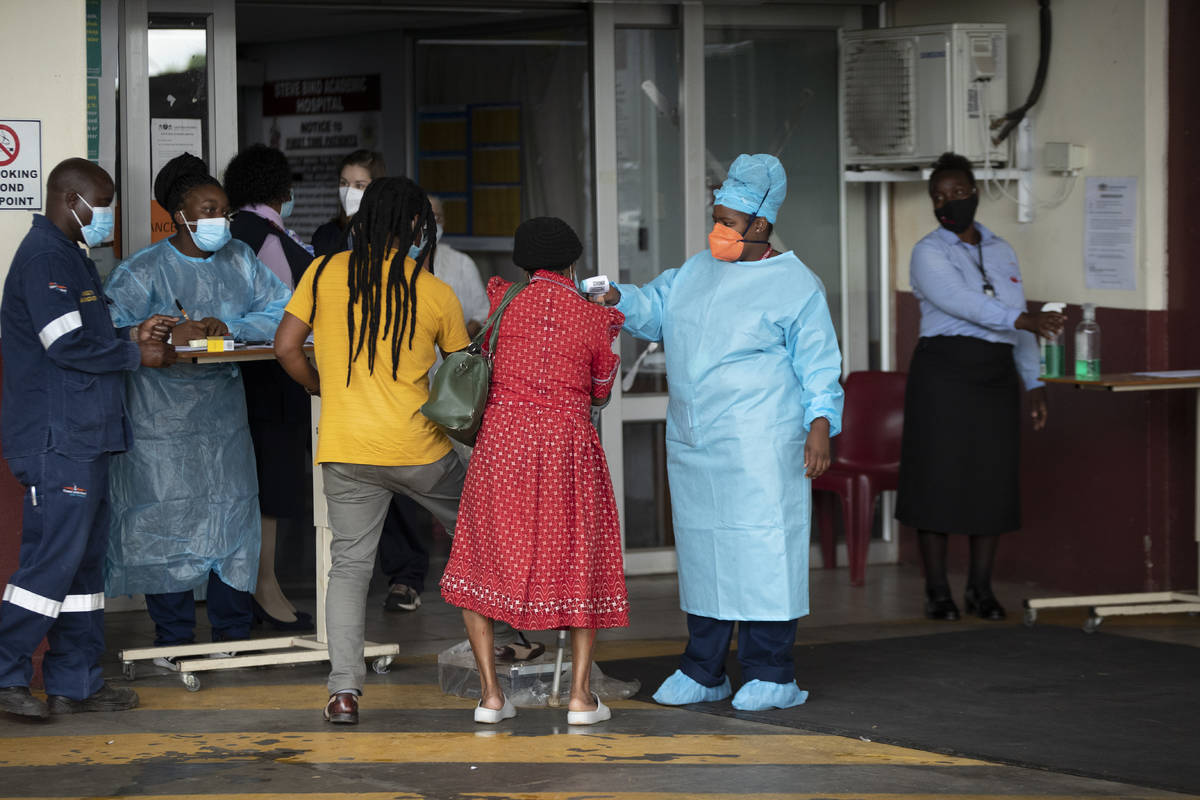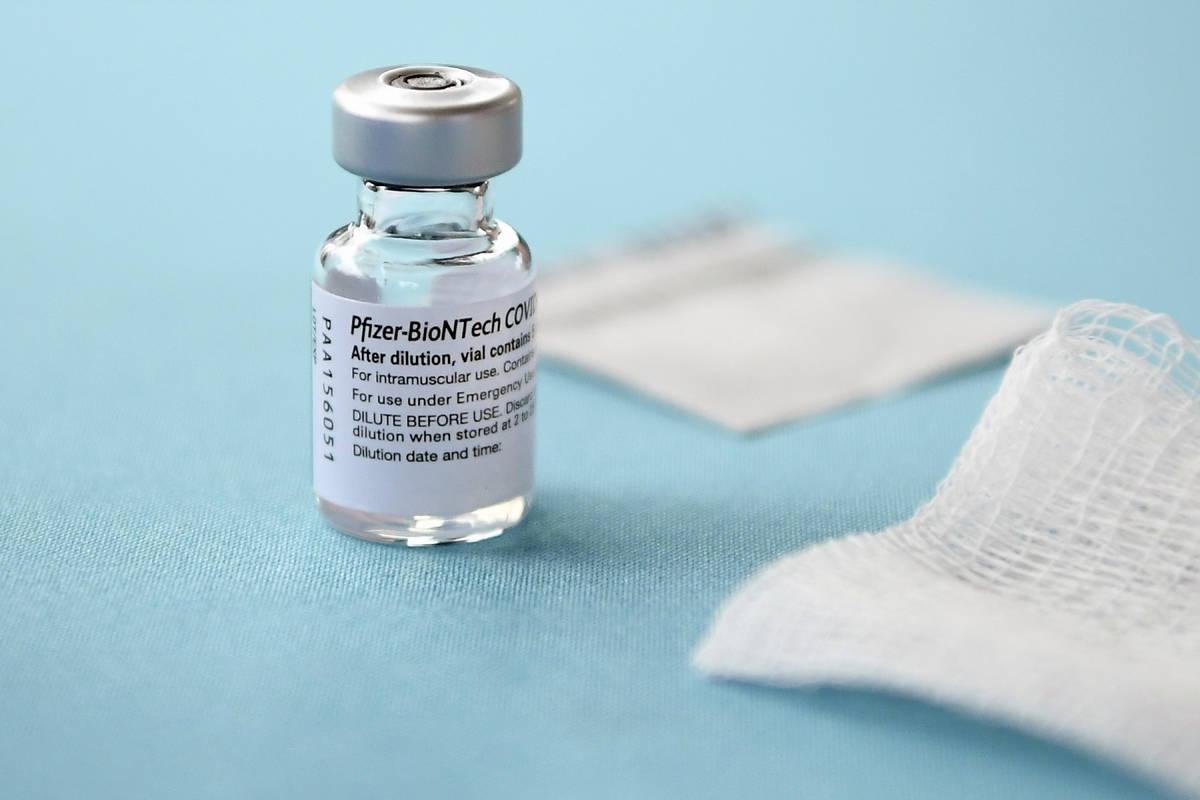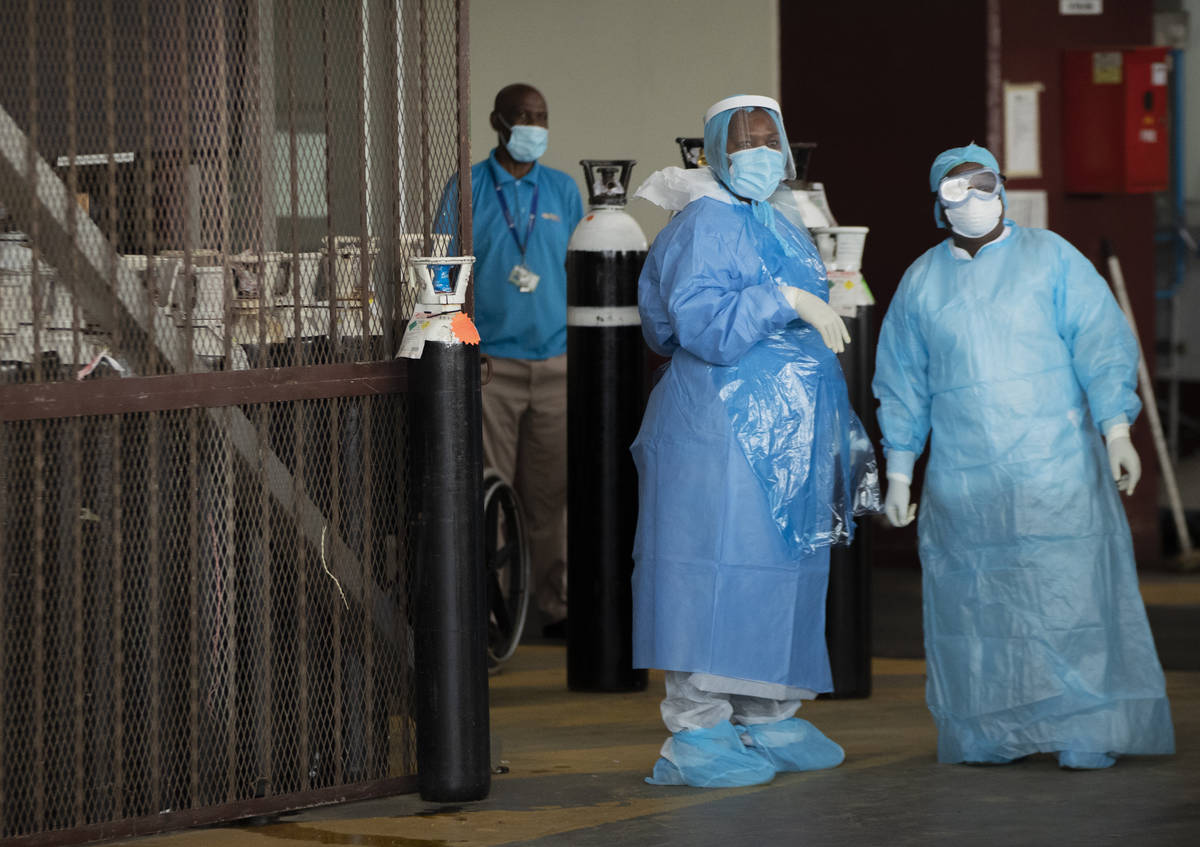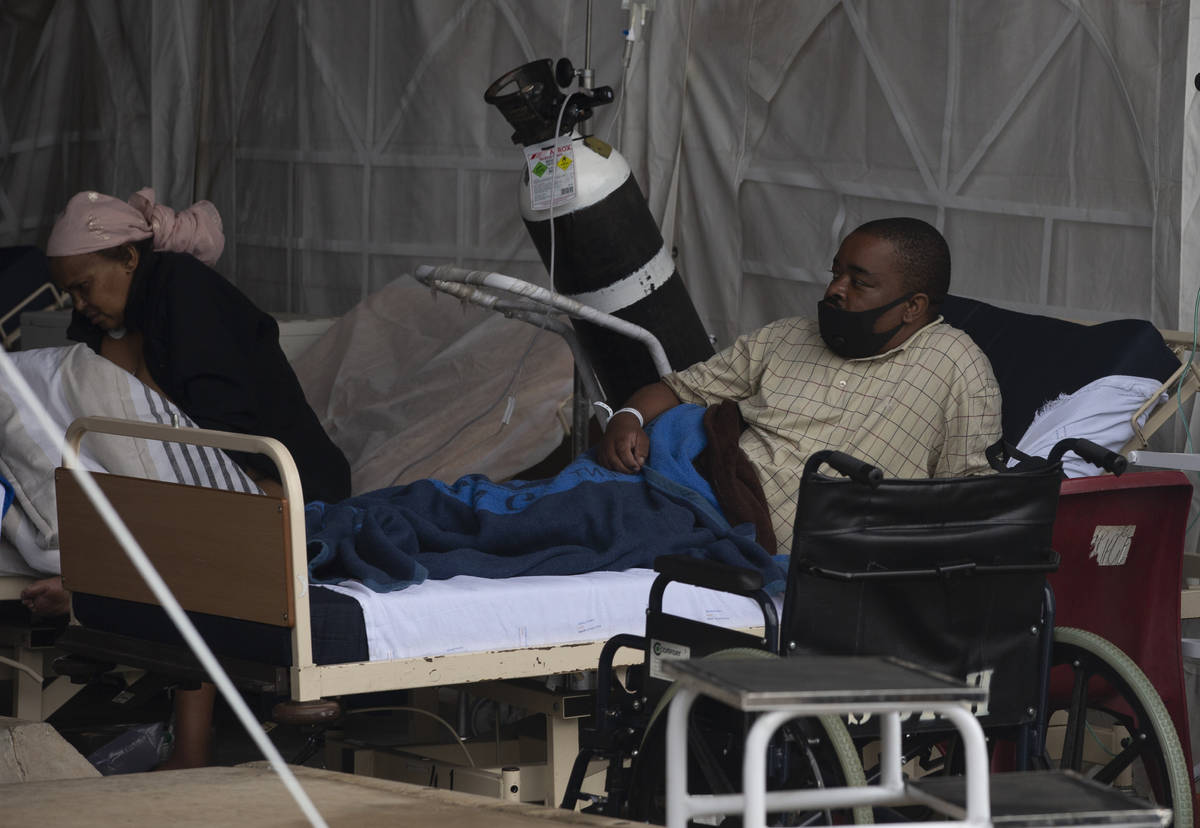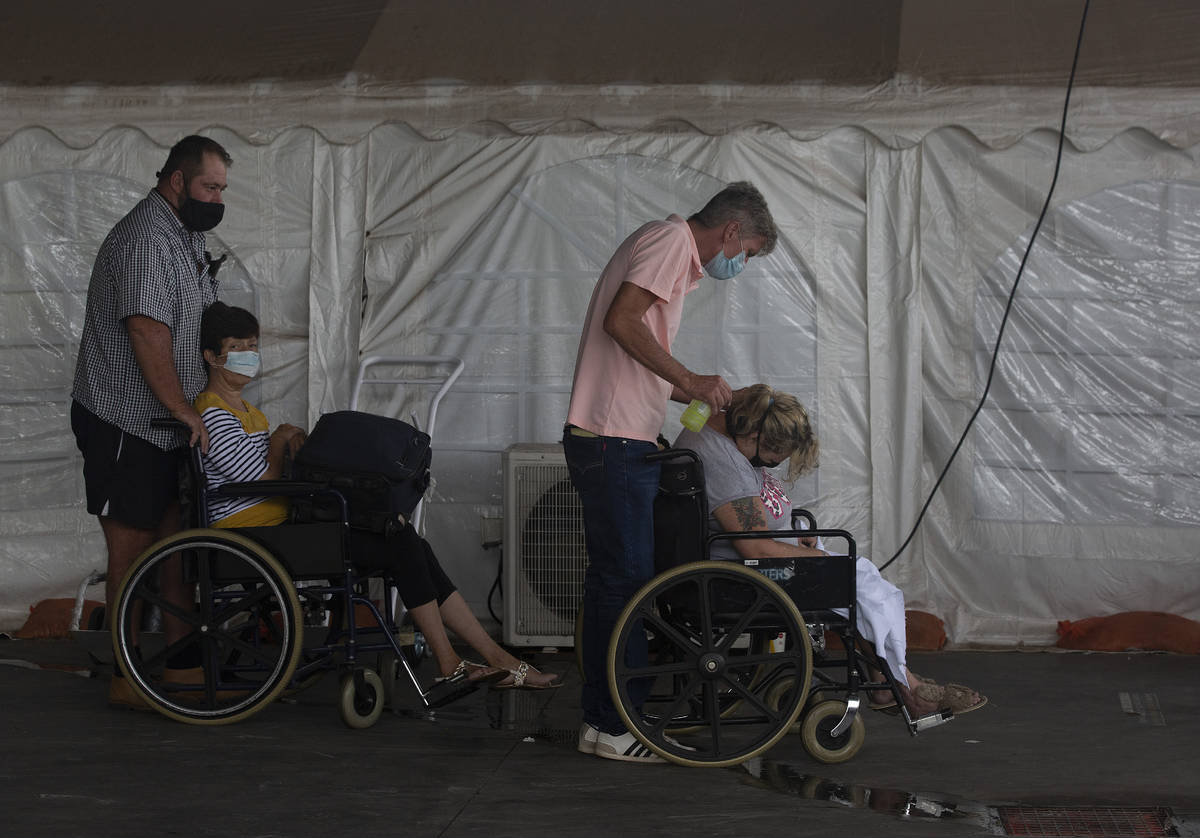New COVID variants: What you need to know
Emerging variants of coronavirus in the U.S. have intensified concerns about rapid spread as states rush to get populations vaccinated.
Health officials quickly are determining how effective newly approved vaccinations are against the variants.
The U.K. variant, known as B.1.1.7, has been identified in Nevada. Six cases of the more-contagious new strain have been detected in Clark County, according to health officials.
A highly transmissible variant first identified in South Africa, also known as the B. 1.351, has infected two people in South Carolina with no travel history, state officials said. The patients also lacked a connection to one another. There is no evidence it is more deadly, but it has been shown to be more contagious.
Previously, scientists had thought the U.K. variant was merely more transmissible, but the latest evidence suggests that those who have contracted the virus are also more likely to die from it, Dr. Anthony Fauci said Jan. 24 on “Face the Nation.” Fauci, the nation’s leading infectious disease expert, has said the variants will likely outnumber the cases of the original strain.
The U.K. variant has been identified in more than 32 states, and the Centers for Disease Control and Prevention has warned that the variant could be the dominant strain in the U.S. by March. California and Florida have the most identified cases of the U.K. strain — more than 125 — of any state, New York comes in third, with 42 cases, according to the CDC.
The good news is research shows the new variants, the B.1.1.7 and the 501Y.V2, do not alter the effectiveness of the Moderna vaccine, according to the World Health Organization.
On Friday, Johnson & Johnson announced the development of a single-shot vaccine that tests showed was robustly effective against illness in the U.S. but less successful in countries where variants were prevalent, according to news reports.
Viruses constantly change through mutation, and new variants are expected to occur over time. Multiple variants of the virus that causes COVID-19 have been documented in the United States and globally during the pandemic.
Here are some basic facts on known variants, according to the CDC and World Health Organization:
U.K., aka B.1.1.7
It emerged in the United Kingdom in October and has an unusually large number of mutations. The variant spreads more easily and quickly than other variants. Th is variant was first detected in September and is now highly prevalent in London and southeast England. It has since been detected in 46 countries around the world, and at least 20 states in the U.S, according to news reports.
South African, aka 1.351 and 501Y.V2
It emerged in South Africa and was discovered in October. It is independent of the U.K. strain, however, it shares some mutations with the that variant. Moderna announced this week the two-dose regimen of its vaccine is expected to protect against emerging strains detected to date.
Brazil, aka P.1
The nation’s first case of the Brazil variant has been found in a Minnesota resident who had traveled to Brazil. The variant was first identified in four travelers from Brazil, who were tested during routine screening at Haneda airport near Tokyo, Japan. This variant contains a set of additional mutations that may affect its ability to be recognized by antibodies.
Spread more easily?
These variants seem to spread more easily and quickly than other variants, which may lead to more cases of COVID-19. An increase in the number of cases will put more strain on health care resources, lead to more hospitalizations, and potentially more deaths. Increased compliance with public health mitigation strategies, such as vaccination, physical distancing, use of masks, hand hygiene and isolation and quarantine, will be essential to limiting the spread of SARS-CoV-2 and protecting public health, says the CDC.
Do current vaccines work?
The World Health Organization says that based on evidence so far, the new variants, including B.1.1.7 and the 501Y.V2, do not alter the effectiveness of the Moderna vaccine. New research suggests that Pfizer’s COVID-19 vaccine can protect against a mutation found in variants that erupted in Britain and South Africa.
What scientists want to know
More studies are needed for scientists to understand how widely new variants have spread, how the disease caused by new variants differs from disease caused by other variants that are circulating and how the variants affect existing therapies and vaccines.
How the virus mutates
The virus that causes COVID-19 is a type of coronavirus, a family of viruses. Coronaviruses are named for the crown-like spikes on their surfaces. Scientists monitor changes in the virus, including changes to the spikes on the surface of the virus. These studies, including genetic analyses of the virus, are helping us understand how changes to the virus might affect how it spreads and what happens to people who are infected with it.
Information about characteristics of variants is evolving for scientists as they work to learn more about how easily they might spread, whether they could cause more severe illness and more deaths, and whether current authorized vaccines will protect people.
Contact Marvin Clemons at mclemons@reviewjournal.com. Follow @Marv_in_Vegas on Twitter.



